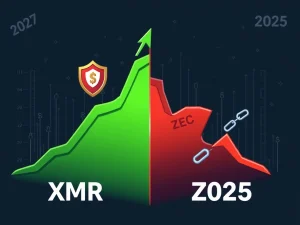Ethereum Price Prediction: Standard Chartered’s Bold $7,500 Forecast Unveiled Today

Today’s crypto market brings significant developments impacting digital assets globally. Investors and enthusiasts closely watch these shifts. We delve into the latest Daily Crypto News, examining a major Ethereum price prediction, critical updates on stablecoin regulation, and a pivotal legal outcome in the Do Kwon trial. These events collectively shape the evolving landscape of blockchain and digital finance.
Ethereum Price Prediction: Standard Chartered’s Bullish Outlook
Standard Chartered, a prominent multinational banking and financial services company, has significantly revised its Ethereum price prediction for 2025. The bank now anticipates Ether (ETH) could reach $7,500, a substantial increase from its earlier target of $4,000. This revised forecast highlights growing institutional confidence in the second-largest cryptocurrency. Several key factors underpin this optimistic outlook.
Firstly, the bank cites a notable surge in institutional buying. Exchange-traded funds (ETFs) and treasury companies have acquired 3.8% of all ETH in circulation since early June. This rate nearly doubles the fastest pace of Bitcoin accumulation by similar entities during the 2024 US election cycle. Such strong institutional demand suggests a maturing market. These large-scale purchases indicate increasing mainstream acceptance and integration of digital assets into traditional investment portfolios.
Secondly, accelerating adoption of stablecoins plays a crucial role. Recent US regulatory changes, particularly the passage of the GENIUS Act in July, provide a clearer framework for stablecoins. This legislation paves the way for wider mainstream adoption. Standard Chartered notes that stablecoins currently account for 40% of all blockchain fees. Over half of these stablecoins are issued on the Ethereum network. This demonstrates Ethereum’s vital role as the foundational layer for a significant portion of the stablecoin ecosystem.
Driving Factors Behind Ethereum’s Ascent
A lot has changed in the Ethereum ecosystem recently. Standard Chartered specifically highlighted increased industry engagement from the Ethereum Foundation and Etherialize. These organizations are pivotal to the Ethereum ecosystem’s development and growth. Their continued efforts strengthen the network’s foundation.
Furthermore, Vitalik Buterin’s plans to boost Ethereum’s layer-1 throughput by tenfold represent a major technical catalyst. This enhancement will enable more high-value transactions to settle directly on-chain. Simultaneously, it delegates smaller transfers to layer-2 networks such as Arbitrum and Base. This layered approach improves scalability and efficiency, making the Ethereum network more robust and capable of handling higher transaction volumes. Such technical advancements are critical for sustaining long-term growth and adoption. The improved scalability directly supports the increasing utility of Ethereum, including its role in DeFi and NFTs.

Stablecoin Regulation: Banking Groups Push for GENIUS Act Revisions
While the GENIUS Act offers a clear framework for stablecoins, it has also sparked new debates. US banking groups, led by the Bank Policy Institute (BPI), recently urged Congress to address a perceived loophole. They claim this loophole could indirectly allow stablecoin issuers to pay yields on stablecoins through affiliated businesses. The current stablecoin laws under the GENIUS Act explicitly prohibit stablecoin issuers from directly offering yield to tokenholders. However, the law does not explicitly ban crypto exchanges or affiliated businesses from doing so. This oversight potentially enables issuers to sidestep the law by offering yields through these partners.
Banking groups express significant concern over this potential loophole. They argue that a failure to close it could disrupt the flow of credit to US businesses and families. They even suggest it could trigger substantial deposit outflows from the traditional banking system, potentially reaching $6.6 trillion. This concern stems from the fear that yield-bearing stablecoins could undermine banks’ ability to attract deposits. Banks rely on these deposits to fund the loans they make, which are essential for economic activity.
The Battle for Deposits: Traditional Finance vs. DeFi
Offering yield is one of the biggest marketing pulls for stablecoin issuers. It attracts users who seek returns on their digital holdings. Some stablecoins, like USDC offered by Circle, already reward holders on crypto exchanges such as Kraken and Coinbase. This practice directly competes with traditional banking products like high-interest savings accounts. The banking sector’s apprehension highlights a growing tension between traditional finance and the rapidly expanding decentralized finance (DeFi) ecosystem. Banks worry about maintaining their competitive edge in attracting and retaining customer deposits.

Do Kwon Trial: Guilty Plea Marks Significant Legal Turn
In a major legal development, Terraform Labs co-founder Do Kwon has changed his plea from not guilty to guilty on two counts. These charges include wire fraud and conspiracy to defraud. This change occurred on Tuesday at the US District Court in the Southern District of New York (SDNY). Kwon waived his right to a trial on two of the nine charges he faced from the US government. He subsequently entered a guilty plea.
The reported plea agreement with prosecutors involves significant financial penalties, specifically $19 million. The two felony charges he pleaded guilty to could carry a prison sentence of up to 25 years if served consecutively. However, the agreement reportedly recommends prosecutors not seek more than 12 years. Kwon’s sentencing hearing is scheduled for December 11. Judge Engelmayer stated, “It will be up to me to decide what a just sentence for you would be,” according to Inner City Press. This legal outcome represents a critical moment in the ongoing efforts to regulate and enforce laws within the cryptocurrency space.
Broader Implications for Crypto Legal Landscape
Do Kwon was indicted in March 2023 for various charges. These included securities fraud, market manipulation, money laundering, and wire fraud, all related to his role at Terraform Labs. He first appeared in the New York courtroom in January following his extradition from Montenegro. At that time, he pleaded not guilty to all charges and remained in US custody without bail. His guilty plea now sets a significant precedent. It underscores the increasing scrutiny and enforcement actions by global regulators against individuals involved in large-scale crypto projects. This case highlights the legal risks associated with operating in the nascent and often complex digital asset market. It also signals a stronger stance by authorities on accountability within the crypto industry.
Daily Crypto News: Market Trends and Future Outlook
Today’s top stories paint a dynamic picture of the cryptocurrency market. The bullish Standard Chartered Forecast for Ethereum underscores growing institutional confidence and the impact of technological advancements. Simultaneously, the ongoing debate over Stablecoin Regulation reveals the tensions between traditional finance and the decentralized ecosystem. Finally, the outcome of the Do Kwon Trial reinforces the increasing legal accountability within the crypto space. These three distinct but interconnected developments offer valuable insights into the market’s trajectory.
The confluence of institutional adoption, regulatory clarity (or the lack thereof), and legal precedents continues to shape the future of digital assets. As the market matures, participants must navigate these evolving dynamics carefully. The focus remains on innovation, compliance, and responsible growth. These daily insights help market participants understand the forces at play, allowing for more informed decisions in this exciting and complex financial frontier.









